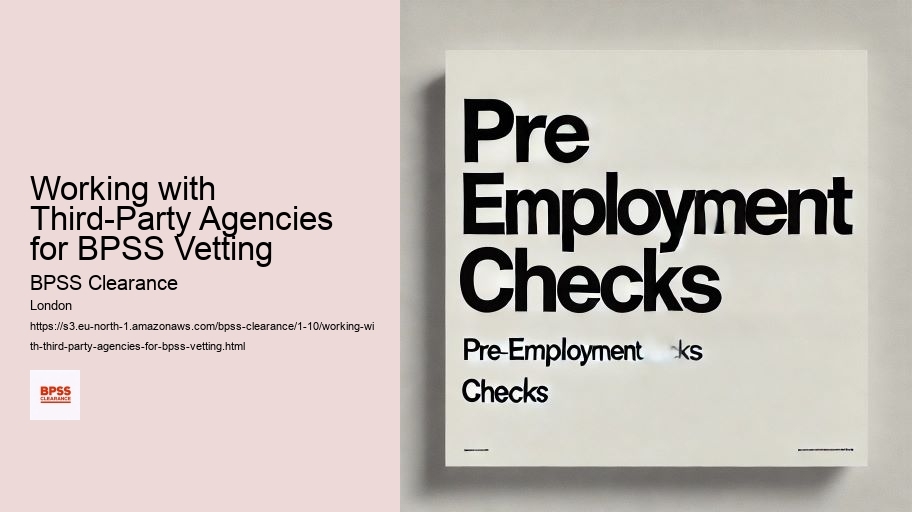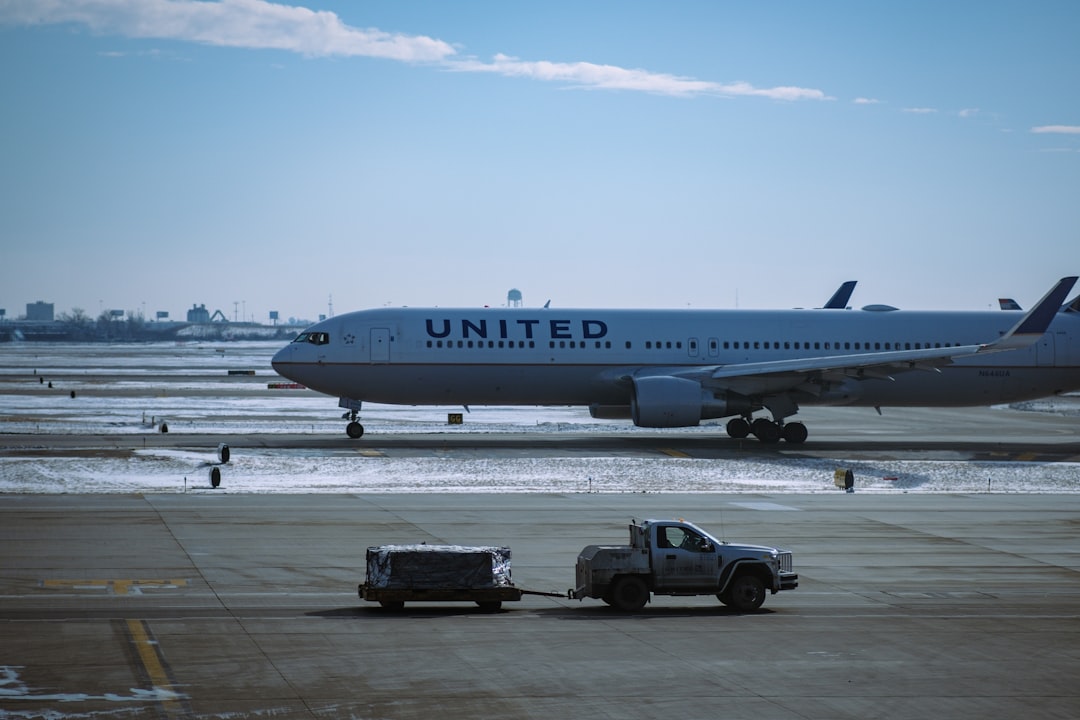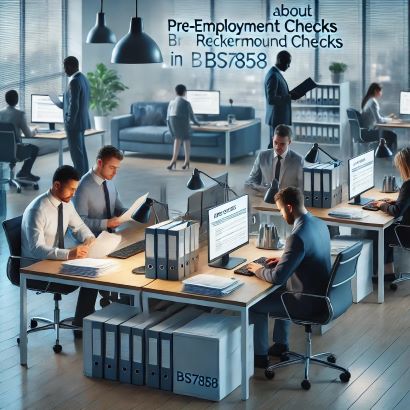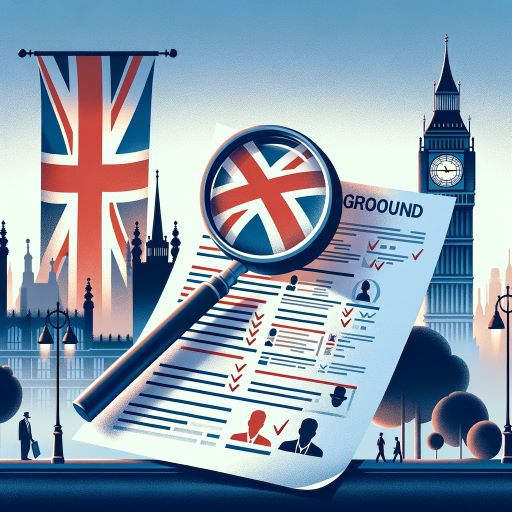

Unspent criminal records refer to offenses that haven't yet been spent under the Rehabilitation of Offenders Act 1974. This eliminates the delays associated with physical mailing and reduces the risk of documents being lost or mishandled. Individuals with unspent criminal records may face additional scrutiny or even be rendered ineligible for roles requiring BPSS clearance. speed up your recruitment process using bpss clearance services that are fast , accurate and affordable.
In these sectors, verifying the eligibility and trustworthiness of individuals handling government-related tasks is essential. For example, individuals who have frequently moved or changed jobs may require more extensive checks on their background, thus extending the process.
These records play an important role in the BPSS clearance process as they're thoroughly evaluated during background checks. However, for positions where exposure to SECRET and TOP SECRET information is probable, BPSS stands out as a fundamental baseline standard ensuring the trustworthiness and eligibility of individuals in sensitive roles.
It guarantees a secure work environment by verifying essential personal and professional details, affirming trustworthiness, and upholding honesty and integrity. Baseline Personnel Security Standard (BPSS) and Disclosure and Barring Service (DBS) checks are two distinct types of background checks used in the United Kingdom, each serving specific purposes.
This process is crucial in safeguarding the nation's security infrastructure and upholding public safety standards. Providing a valid passport or driver's license is essential for verifying your identity when applying for BPSS clearance. They work in environments with young and vulnerable individuals and must ensure a safe and secure educational setting.
By ensuring that employees do not have harmful criminal backgrounds, organizations can maintain a safe and secure working environment. However, it also necessitates stringent measures to guard against potential cybersecurity risks.
Follow our guide to apply for BPSS clearance successfully.

Posted by Jasmine Roberts on 2024-10-08
Keep your BPSS clearance active with proper renewals.

Posted by Jasmine Roberts on 2024-06-24
Learn how BPSS clearance protects government data.

Posted by Jasmine Roberts on 2024-06-14
These components ensure that the individual is appropriately vetted for security-sensitive positions but do not delve into extensive criminal history unless necessary for the role. Education verification These documents are essential for confirming your eligibility and identity during the clearance process. The right to work check under BPSS serves as a legal safeguard that prevents illegal employment.
Candidates can upload necessary documents directly through secure online portals, which are immediately accessible to HR departments and vetting personnel. Your BPSS clearance is typically valid for 3 years from the date of issue.
Proper documentation plays an important role in confirming your eligibility and suitability to handle sensitive government information during the BPSS verification process. If you have been self-employed, invoices to clients and bank statements showing payments received can serve as evidence.
Although the right to work is typically verified at the start of employment as part of BPSS checks, it may need to be reverified if an individual's circumstances change, such as the expiration of a visa or changes in immigration status. The act mandates how personal data, including data collected during BPSS clearance, should be handled-ensuring it is processed lawfully, fairly, and transparently.

DBS checks, on the other hand, are regulated by the Home Office and are designed to prevent unsuitable people from working with vulnerable groups. This step ensures that the individual has the right to work and is not illegally residing in the country, which is particularly important for maintaining lawful employment practices in sensitive environments. Understanding the nuances of this screening procedure could shed light on its significance in today's security-conscious landscape.
Your proof of identity, employment history, and national and immigration status play an essential role in this process. Proper identification is the cornerstone of the BPSS clearance process and helps maintain the integrity of the workforce within protected sectors.
Such issues require additional investigation and possibly further documentation, which can prolong the process. This legal framework ensures that BPSS checks are conducted in a manner that is secure, ethical, and compliant with the broader objectives of national security and public safety.
This ensures that any changes that might affect an individual's security status are identified and managed effectively, maintaining continuous security compliance. Renewal is required after the 3-year period to maintain access to government assets.3.

Ensuring that all employees undergo BPSS clearance before taking on roles that involve access to sensitive information is key to maintaining operational security and complying with national security regulations. The detailed guidelines of BS7858:2019 make it indispensable for security-sensitive industries looking to uphold the highest standards of reliability and safety. During the renewal process, you'll need to undergo re-verification of your right to work, identity, criminal records, and employment history to confirm continued eligibility.
Finally, while both BPSS and BS7858:2019 are crucial for their respective fields, the choice of which standard to apply depends on the specific needs of the organization and the nature of its work. For compliance, it is vital that employers keep records of the documents checked as part of the right to work process.
The integration of digital technologies has streamlined the BPSS clearance process, making it more efficient and less prone to errors. Organizations must understand the differences to ensure they are implementing the correct type of check for their specific needs.
Temporary staff within government organizations may also need a BPSS check as part of pre-employment screening procedures. These records must be stored securely and retained for the duration of the employee's employment and for two years afterwards, as stipulated by the Home Office.


The clearance is essential to safeguard national security and operational integrity within the armed forces. The process of obtaining BPSS clearance includes a detailed review of the applicant's identity documents, such as passports or driver's licenses. While BPSS itself is not mandated by specific laws, it operates under the broader legal and regulatory framework that governs national security and employment practices in the UK.
Additionally, Security Check (SC) and Counter-Terrorist Check (CTC) clearances offer access to more classified data than BPSS, making them essential for roles with heightened security requirements. Reviewing a candidate's employment history is another vital component of the BPSS checks.
BPSS checks are typically required for individuals working in, or on behalf of, the UK government. However, delving into the specifics of unspent criminal records and time spent abroad might hold the key to your successful clearance.
Here's what you need to know:Valid documents such as a passport or a Home Office document are required to prove your national and immigration status. Baseline Personnel Security Standard (BPSS) clearance is a fundamental security check within the UK, primarily designed to prevent individuals who may pose a threat to national security from gaining access to government and sensitive information.
Typically in the UK, a standard BPSS check may range from £50 to £100. While DBS checks are significant for specific sectors like healthcare and education, BPSS is tailored for individuals with access to government assets and secret information. To guarantee a thorough evaluation of candidates, organizations typically follow these steps:Applicants need to provide documents like a passport or driver's license to confirm their identity.
Be honest and consistent to avoid failing the BPSS check. This step ensures that the candidate is who they claim to be and helps prevent identity fraud.
DBS checks are available in three levels: Basic, Standard, and Enhanced. To continue accessing government assets, renewal of your BPSS clearance is necessary after this 3-year period.
Follow these steps to guarantee a thorough BPSS clearance:1. **Verify Right to Work:** Check the individual's legal right to work status in the country.2. **Conduct Identity Check:** Authenticate the person's identity through official documents like passports or driver's licenses.3. **Check Criminal Records:** Perform a background check to identify any criminal history that could pose a risk.4. **Confirm Employment History:** Validate the accuracy of the individual's employment history to ensure transparency and honesty. These technologies provide an additional layer of security by ensuring that the identity information provided by the applicant matches biometric data, further securing sensitive positions within government and related sectors.

Employers conducting BPSS screening must comply with UK data protection laws. Personal data is stored securely and used only for vetting purposes.
Government roles require BPSS Clearance to ensure that employees handling sensitive information are trustworthy, legally authorized to work, and free of disqualifying criminal histories.
Employers rely on BPSS Clearance results to make informed hiring decisions for sensitive roles. It helps ensure candidates meet security standards required for the job.
Delays in BPSS Clearance can occur due to incomplete applications, missing documents, or extended reference checks. Applicants should ensure all information is accurate and complete.
The cost of BPSS Clearance is typically covered by the employer. However, in some cases, applicants may need to pay for certain document-related fees, such as background check certificates.